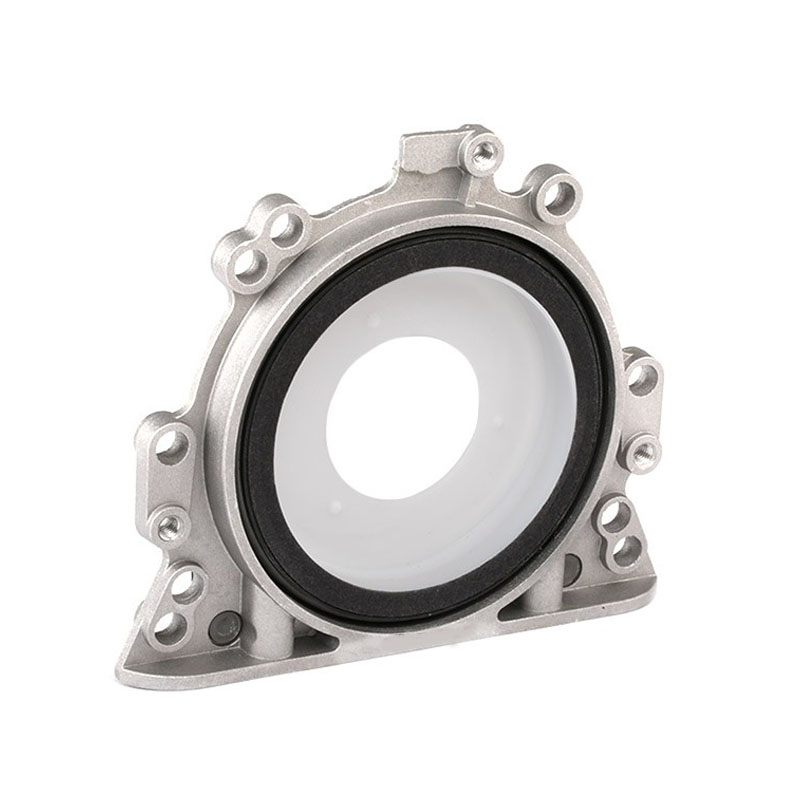fkm oil seal
Understanding FKM Oil Seals A Comprehensive Guide
FKM oil seals are essential components in various industrial applications, particularly in machinery and automotive systems. Made from fluoroelastomer (FKM) material, these seals are renowned for their excellent resistance to high temperatures, aggressive chemicals, and a wide range of oils and fuels. This article delves into the characteristics, benefits, applications, and considerations of FKM oil seals.
Characteristics of FKM Oil Seals
FKM, commonly known by the brand name Viton, is a type of synthetic rubber that exhibits outstanding thermal stability. FKM oil seals can typically operate in temperatures ranging from -20°C to 200°C (-4°F to 392°F), making them suitable for environments where traditional rubber seals may fail. Additionally, FKM is resistant to various chemicals, including hydrocarbons, acids, and steam, which enhances its durability and longevity in harsh operating conditions.
Benefits of FKM Oil Seals
One of the primary advantages of FKM oil seals is their ability to maintain sealing integrity, even under extreme conditions. The material's resistance to swelling, hardening, and aging ensures that the seals perform effectively over time. Furthermore, FKM oil seals exhibit low compression set properties, meaning they retain their shape and function even after prolonged exposure to stress or high temperatures.
These benefits translate into reduced maintenance costs and downtime for machinery. By preventing leaks, FKM oil seals contribute to the efficient operation of systems, safeguarding against potential damage caused by fluid loss. Additionally, their robust nature allows for use in a variety of aggressive environments, making them a preferred choice in sectors such as automotive, aerospace, and chemical processing.
fkm oil seal

Applications of FKM Oil Seals
FKM oil seals find applications across a wide range of industries. In the automotive sector, they are commonly used in engines, transmissions, and differentials, where they prevent oil leaks and maintain optimal performance. In the aerospace industry, they are utilized in hydraulic systems and fuel systems, where their resistance to extreme temperatures and chemicals is crucial.
Moreover, FKM oil seals are widely used in the manufacturing of pumps, compressors, and valves in the chemical processing industry. Their ability to withstand aggressive chemicals ensures that equipment operates safely and efficiently, minimizing the risk of contamination or failure.
Considerations When Choosing FKM Oil Seals
While FKM oil seals offer numerous advantages, there are certain considerations to keep in mind. Cost is often higher than other seal materials due to the specialized production processes involved in creating FKM. However, the long-term benefits can outweigh initial expenses, especially in demanding applications.
Furthermore, it is essential to select the correct size and shape of oil seal for the specific application. Proper installation is also crucial, as incorrect fitting can lead to premature failure. Consulting with a seal expert or supplier can help ensure that the right FKM oil seal is chosen for the intended use.
In conclusion, FKM oil seals are critical components that enhance the reliability and efficiency of various mechanical systems. Their high resistance to temperature, chemicals, and oils makes them an indispensable part of numerous industries. By understanding their characteristics and applications, users can make informed decisions, ultimately leading to improved performance and reduced operational costs.
-
Your Essential Guide to Car Repair Kits: From Rust to Dings
News Jun.13,2025
-
Understanding Vital Engine Seals: Key Gaskets in Diesel and Performance Engines
News Jun.13,2025
-
The Vital Role of Bearings in Marine and Boating Applications
News Jun.13,2025
-
Sealing the System: A Complete Guide to Engine Oil Gaskets
News Jun.13,2025
-
Sealing the Foundation: A Complete Guide to Engine and Transmission Pan Gaskets
News Jun.13,2025
-
Essential Bearings and Hubs for Marine Vessels and Trailers
News Jun.13,2025
-
Your Complete Guide to Automotive Oil Drain Plugs and Valves
News Jun.12,2025
Products categories















